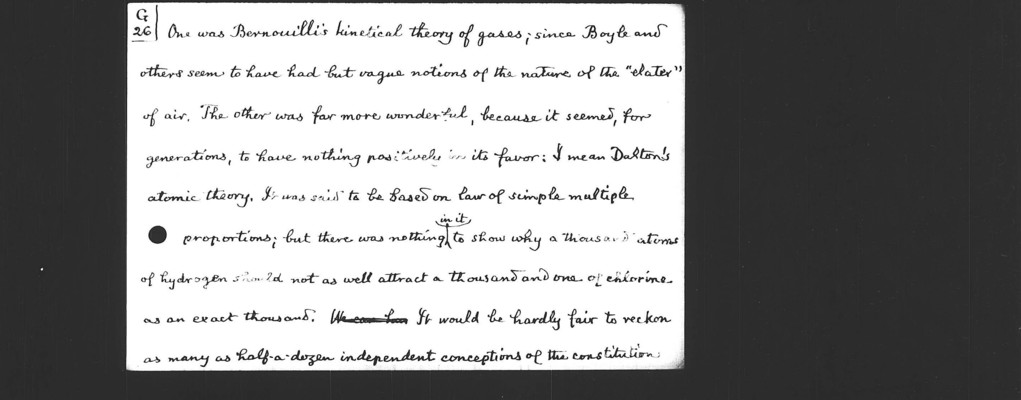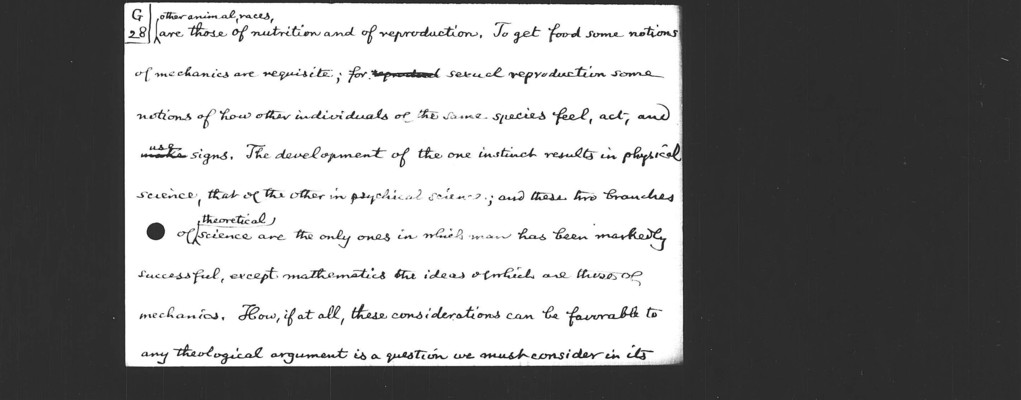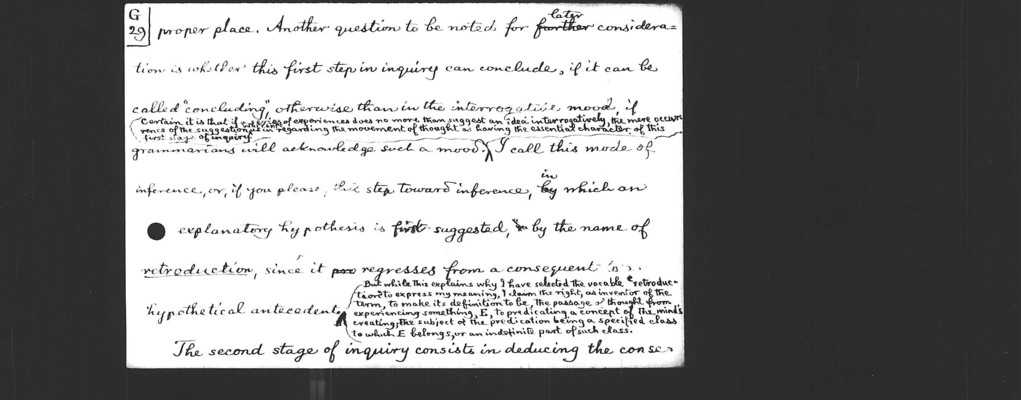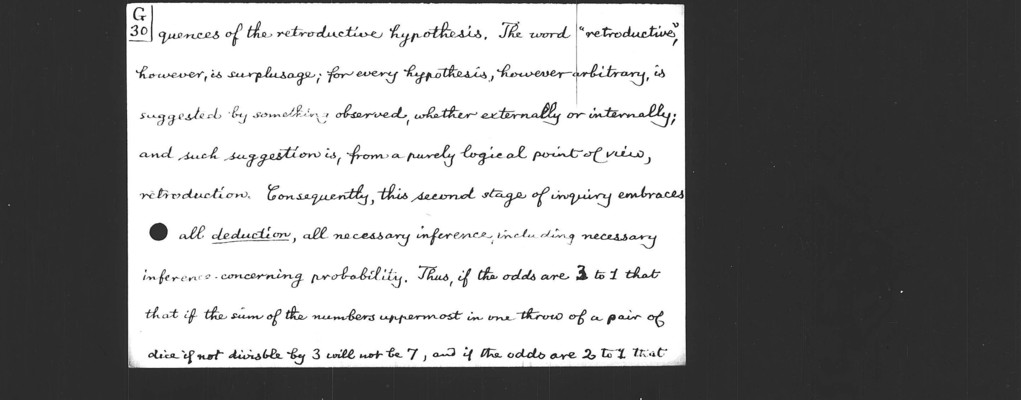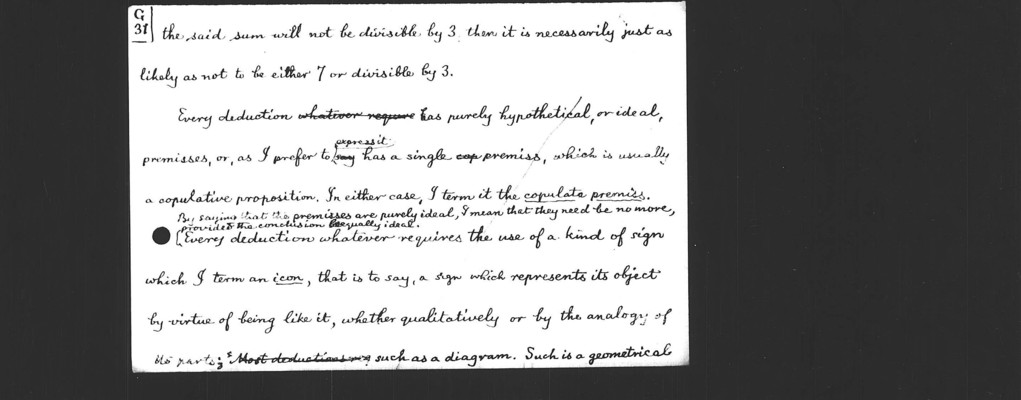Pages
26
G26
One was Bernouilli's kinetical theory of gases; since Boyle and others seem to have had but vague notions of the nature of the "elater" of air. The other was far more wonderful, because it seemed, for generations, to have nothing positively in its favor: I mean Dalton's atomic theory. It was said to be based on law of simple multiple proportions; but there was nothing in it to show why a thousand atoms of hydrogen should not as well attract a thousand and one of chlorine as an exact thousand. We can har It would be hardly fair to reckon as many as half-a-dozen independent conceptions of the constitution
27
G28
other animal races, are those of nutrition and of reproduction. To get food some notions of mechanics are requisite; for reproduct sexual reproduction some notions of how other individuals of the same species feel, act, and make use signs. The development of the one instinct results in physical science, that of the other in psychical science; and these two branches of theoretical science are the only ones in which man has been markedly successful, except mathematics the ideas of which are theses of mechanics. How, if at all, these considerations can be favorable to any theological argument is a question we must consider in its
28
G29
proper place. Another question to be noted for further later consideration is whether this first step in inquiry can conclude, if it can be called "concluding," otherwise than in the interrogative mood, if grammarians will acknowledge such a mood. Certain it is that if a series of experiences does no more than suggest an idea interrogatively, the mere occurrence of the suggestion warrants us in regarding the movement of thought as having the essential character of this first stage of inquiry. I call this mode of inference, or, if you please, this step toward inference, by in which an explanatory hypothesis is first suggested, by the name of retroduction, since it pro regresses from a consequent to a hypothetical antecedent. But while this explains why I have selected the vocable 'retroduction' to express my meaning, I claim the right, as inventor of the term, to make its definition to be, The passage of thought from experiencing something, E, to predicating a concept of the mind's creating; the subject of the predication being a specified class to which E belongs, or an indefinite part of such class.
The second stage of inquiry consists in deducing the consequences
29
G30
of the retroductive hypothesis. The word "retroductive," however, is surplusage; for every hypothesis, however arbitrary, is suggested by something observed, whether externally or internally; and such suggestion is, from a purely logical point of view, retroduction. Consequently, this second stage of inquiry embraces all deduction, all necessary inference, including necessary inference concerning probability. Thus, if the odds are 3 to 1 that that if the sum of the numbers uppermost in one throw of a pair of dice if not divisible by 3 will not be 7, and if the odds are 2 to 1 that
30
G31
the said sum will not be divisible by 3, then it is necessarily just as likely as not to be either 7 or divisible by 3.
Every deduction whatever require has purely hypothetical, or ideal, premisses, or, as I prefer to say express it, has a single cop premiss, which is usually a copulative proposition. In either case, I term it the copulate premiss. By saying that the premisses are purely ideal, I mean that they need be no more, provided the conclusion be equally ideal. Every deduction whatever requires the use of a kind of sign which I term an icon, that is to say, a sign which represents its object by virtue of being like it, whether qualitatively or by the analogy of its parts; Most deductions req such as a diagram. Such is a geometrical
